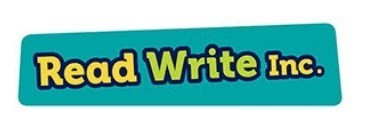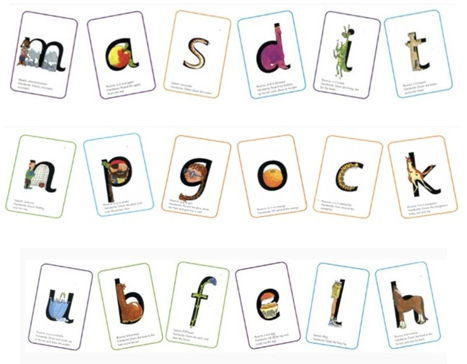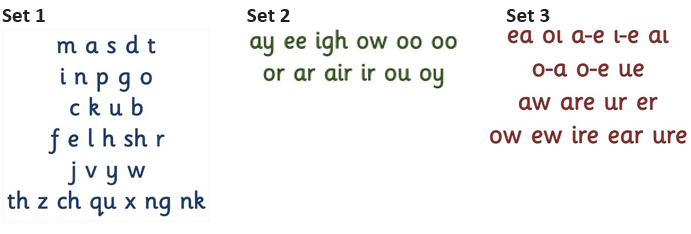- Home
- Curriculum
- Reading at Whitefield School
Reading at Whitefield School
Reading skills are an essential requirement for an active and independent life for all children.
At Whitefield School, we aim to promote high standards of reading by equipping pupils with the skills to become independent, enthusiastic readers who read easily, fluently and with good understanding who develop the habit of reading widely and often, for both pleasure and information. Our focus is for all pupils to leave Whitefield School at the end of their school career with the highest degree of literacy skills possible for their individual level of ability.
At Whitefield School our approach to reading development; knowledge and skills has been adapted to meet our pupils’ needs, at the same time maintain high expectation about the pace and progression of the learning. Reading for the children and young people at Whitefield School directly relates to the school mission statement ‘enjoyment, achievement and wellbeing for all’. Adults support children and young people to enjoy books, stories, rhymes, pictures and written information and to make progress from their own starting points. This underpins their progress in other areas of learning and supports life skills. Reading enhances wellbeing by providing a means to relax, supporting the positive use of leisure time and is part of preparing children and young people for greater independence in their adult lives.
Reading for pleasure at Whitefield School
We recognise that reading for pleasure directly links to our pupil’s success throughout their time at school and beyond the classroom, supporting their quality of life now and into adulthood.
We firmly believe that reading for pleasure supports our pupils to develop their wellbeing, empathy, connection to others, their ability to gain insight into the world and skills in independence.
At Whitefield school we promote reading for pleasure in a number of ways:
- We value the books pupils choose to read - we are continually building a high-quality stock of books and if a pupil has a special interest, we make sure to stock books to fuel that passion.
- Setting aside time to read - we promote time for reading in the school day, whether this is story time for the whole class, individual reading time, audio stories, personalised books, sensory stories or story massage, we love it if our pupils and our staff get a chance to read or be read to in the day.
- Local library visits - we encourage our classes to make use of our local libraries to give them broader access to types of texts and to help them build skills in independence whilst finding books they enjoy.
- Reading Challenges - our whole school reading for pleasure initiative ensures every child has access to a book that can be read to them or that they can read, each week. Pupils receive a special award when they have read or have had read to them a set amounts of books.
- Celebrations and special events - World Book Day is one of the highlights of our school year! All of our reading events for pupils helps to broaden their exposure to different books, and promote positive communication about reading.
Read Write Inc.

Phonics at Whitefield School
At Whitefield School we are committed to ensuring our pupils develop their phonic skills to enable them the best possible chance in becoming lifelong readers. We use the Read Write Inc (RWI) programme which follows a method of teaching reading and writing, centred on learning the sounds of the letters and then blending them together to read words. The children will also learn to break down words into individual sounds in order to support them along their journey of developing their writing skills.
Pupils with Autism Spectrum Conditions (ASC)
A range of approaches for teaching phonics will be used alongside the prescribed approach when working with pupils with diagnosis of ASC because each child learns in a unique way. This may involve the use of visual resources, use of simple, concise language and minimal instructions. Depending on the need of the individual pupil they may use phonics using the Read Write Inc. approach or the whole word approach which combines concrete objects, photographs and picture symbols where appropriate and whole words in print.

Phonics Intent at Whitefield School
The stage in which the children at Whitefield’s begin will be determined by the pathway they are on but children will initially learn the single letter sounds and begin to blend these together. Once the children have been taught all of the single letter sounds they will be assessed and grouped according to their ability and or provided the necessary support within the classroom delivered by either the teacher or support staff. The children will be taught in small groups delivered by either teachers or support staff who have had the appropriate Read Write Inc training, which means learning can be tailored to meet the individual needs of each child and in line with their Education Health Care Plans.
Read Write Inc will commence in Reception and children will continue their RWI learning throughout their primary and secondary experience (depending on pathway and ability) and will have at least four sessions per week, lasting 20-30 minutes. Children will be assessed every half term to track their progress and to ensure they are working within the appropriate group. All children will begin by learning the Set 1 sounds in a specific order and progress through each set at their own speed and according to ability. Children will also begin learning to blend sounds together to make words after learning the first 5 sounds, firstly through practising oral blending. Once children can blend independently, they will progress on to reading green words.
Once children can read green words, they will move on to begin reading stories in their sessions. Each storybook is matched to the sounds the children have grown familiar to, which supports the transition onto the next stage and aids them to build their confidence with reading. The children are exposed to and start learn the red words through these storybooks, which are irregular words that cannot be sounded out using Fred talk. The process is repetitive and supports learning at Whitefield School, as it builds upon a consistent a systematic approach as each storybook is taught in the same way, with children practising reading the green words in the story and also the red words, before they begin to read the book. Children will then read the book several times to help build their fluency and comprehension skills.
Phonics Implementation and Impact at Whitefield School
Reading is developed through the programme with children learning 44 sounds and the corresponding letter/letter groups (special friends) using simple picture visual prompts. Whitefield children will learn a ‘sound a week’ to provide the children with appropriate time to learn the sounds purely, which will support their blending. The children will start with learning to read words using Fred Talk (c-a-t, m-a-t, s-a-t), and develop their ability to read words by blending the sounds together (c-a-t ... cat). Depending on ability and pathway, children will bring home a copy of their current Read Write Inc storybook, to read and share with parents/carers at home.
Children at Whitfield’s will develop their Writing skills using the letters/letter groups which represent the 44 sounds (graphemes). They will be supported and work through the sounds at their pace but when ready, children will be encouraged to write and spell words by saying the sounds in Fred Talk (c-a-t, m-a-t, s-a-t).
Then once children demonstrate an ability to write single words, the children will learn to write simple and then increasingly complex sentences. As the children’s understanding of the graphemes develops, this will support their application to writing independently and confidently.
Read Write Inc tutors will plan (according to need and ability) for the children to work with a partner as Talking is an important part of the process as it provides opportunities for children to support each other with orally building their sentences and writing their ideas down.
Praise plays a significant part in encouraging children to engage with their phonics learning at Whitefield School and this will be carried out in accordance to the environment and context of children. For example; 1, 2, 3 well done me, Hip, Hip, Hooray! and Yee-Haw!
Assessment is ongoing in response to our pupils needs but formal assessment will take place termly for those pupils identified.
Phonic Sets
The sounds are broken into three sets and children will only move onto the next set when they are confident blending and recognising the previous set.

How will Whitefield parents be supported and encouraged to support at home
It’s very important even if a child is not at the stage of reading words, to have stories read to them. Parents/carers will be invited to parent meetings, provided with information to support learning in school and sent links to short clips to watch, which will explain the benefits of reading to their child, including encouraging parents/carers to:
- Enjoy talking with their child and encourage them to tell share ‘stories’.
- Demonstrate their love of reading and enjoy share a range of books together (fiction, non-fiction and poetry).
- Listen to child read regularly.
- Discuss the different features of various books.
- Explain the meaning of new words.
- Read cereal packets, shopping lists, road signs, web pages, magazines, newspapers etc as reading can take place anywhere!